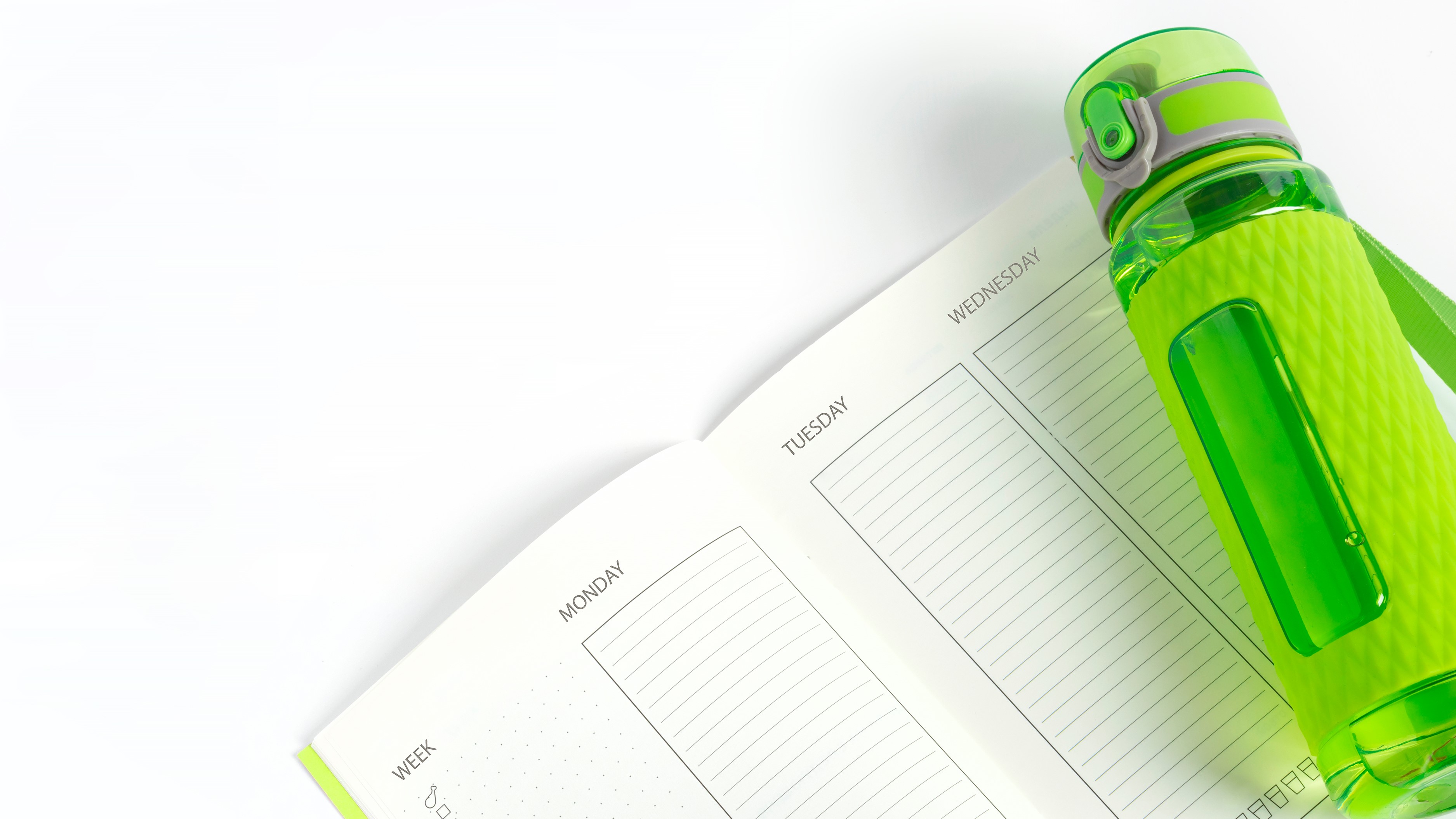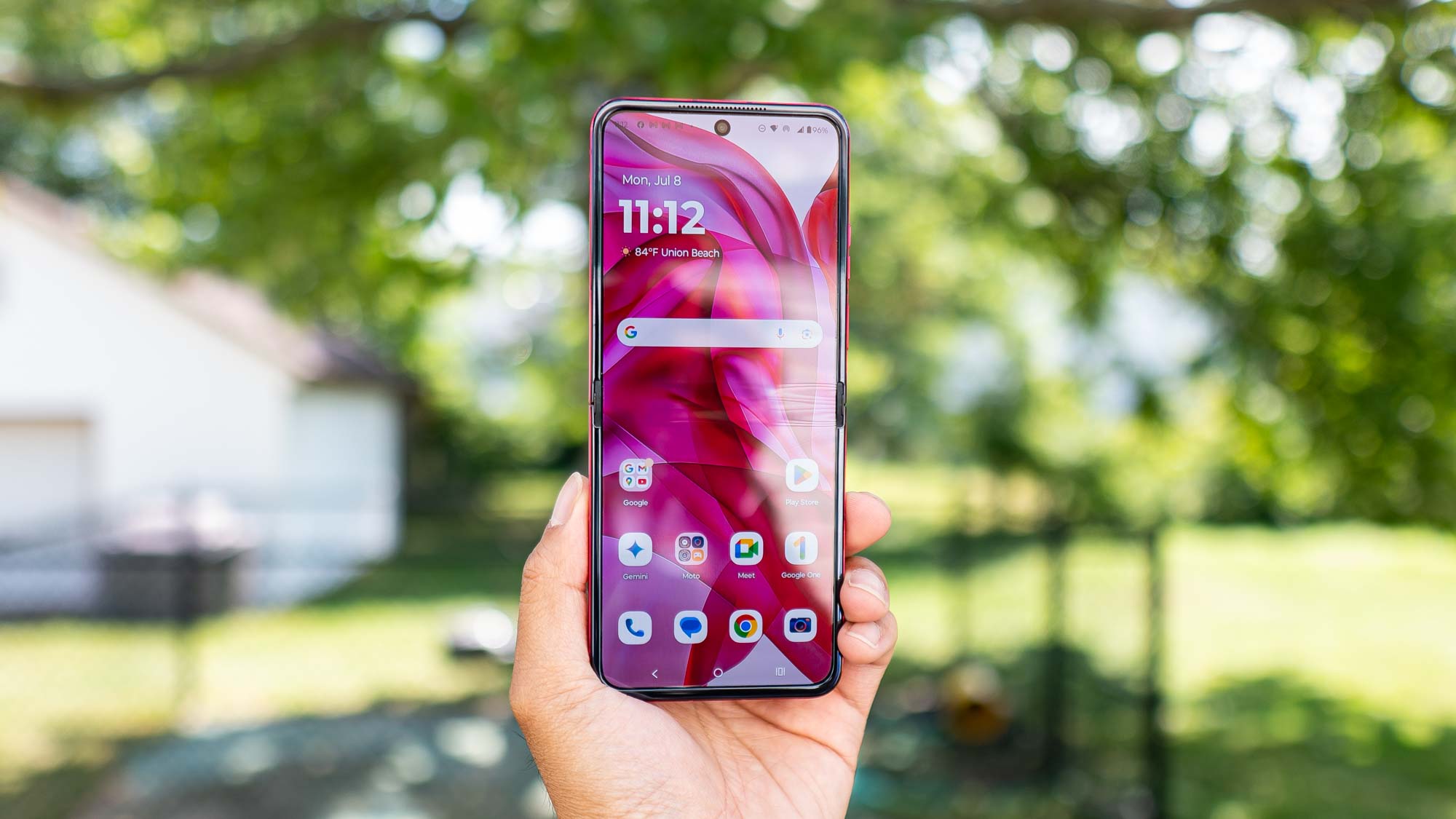10 tips to create a workout plan that lasts beyond January
The trick is to find ways to make exercise a lifestyle

It’s that time of the year when fitness resolutions seem to be all the buzz. But for many, their newly minted workout goals will be abandoned before Groundhog Day.
In fact, according to a recent Statista study of 1,500 adults, the most popular New Year’s Resolution last year was to exercise more (50%), with losing weight coming in a close second (48%). Unfortunately, 80% of the people who make health-related resolutions ditch them by Valentine’s Day. And 14% of resolutioners who join a gym at the start of the year with lofty exercise intentions find themselves quitting by the end of February (50% quit within six months).
But before you give up all hope, there are ways to outsmart these ominous statistics and instead put yourself in the fitness success story category. The trick is to find ways to make exercise a lifestyle, not just a means to an end. Or maybe the trick is just tricking yourself into making exercise a habit? Whatever works.
To help you figure out what’ll get you moving, here are some motivational means for making this year your most active one yet.
Looking for workout inspiration? We've found the best ab workouts for free here, as well as this dumbbell workout with 1.3 million views.
1. Identify your goals
Unless you want to engage in random workouts without concrete results, it’s imperative that you identify your goals and define them in detail. This will help keep you laser focused on what you'd like to achieve.
“Failure to identify your goals might leave you ‘taking action’ but moving in haphazard directions, eventually ending up right where you started,” says exercise physiologist Bill Sukala, PhD.
Sign up to get the BEST of Tom's Guide direct to your inbox.
Get instant access to breaking news, the hottest reviews, great deals and helpful tips.
For example, Dr. Sukala suggests setting a goal like "losing weight" is too general and ambiguous. Instead, be specific, phrasing it as something like "I will lose 12 pounds of stored body fat over the course of six months, or approximately a half-pound of stored body fat per week. I will accomplish this by expending an additional 125 calories per day through exercise and eating 125 calories less per day for a 250 calorie deficit."
While that might seem a little too detailed, in actuality the more specific you can be with your fitness objectives, the better your chance of accomplishing them. “Figure out your overarching goals, then reverse engineer each goal into small achievable daily, weekly, and monthly goals, and you will achieve your larger long-term goals by design,” Says Dr. Sukala.
Trying to lose weight? Here are three simple ways to lose weight without dieting in 2022.
2. Make yourself accountable
Want to stick with your exercise plan? Accountability is one hack for making sure you show up! That means hiring a personal trainer, getting a workout partner, or paying for a class in advance so you feel driven to attend. It’s harder to bail on a workout when you know you’re letting someone down if you ditch (even if that someone is just you!).
“One of the key ways to make this work is to take a position of ownership with your workout partner or personal trainer,” says Certified Personal Trainer Rob Darnbrough, CEO and co-founder of The Smart Fit Method. “You have to be the driving force as to why you’re at the gym, and not just rely on their support.”
That being said, studies consistently show that accountability is a potent motivator for exercise adherence. So, if you always find a million excuses for not showing up for your workout, make sure someone is waiting for you at the gym. Because you don’t want to be known as the dumbbell who doesn’t carry their weight!

3. Incorporate workouts you enjoy
Guess what? Exercise doesn’t have to make you miserable! In fact, you’re allowed to find it fun! And chances are, if you slip activities you actually like into your workout plan, you’ll be more likely to stick with it.
“It will be easier and you will be more likely to integrate fitness into your weekly routine if you enjoy the activity,” says Triana Brown, Senior Manager of Talent and Product Development at [solidcore].
Do you like strength training/weights? Then hit the gym (or take a look at the best adjustable dumbbells for strength training at home). Are you into boxing? Maybe try Muay Thai. Do you love to dance? If so, then a cardio dance workout might be best for you.
“I encourage you to try different types of exercise,” says Brown. “That’s how exercise becomes something you look forward to rather than an obligation.”
4. Schedule your workout
Make your workouts a date, like in your planner. You schedule going to the doctor, you make reservations for dinner, you write down when your next Zoom meeting is— so make it a habit to also schedule your workouts.
“The old adage, ‘failure to plan is planning to fail’ rings true,” says Dr. Sukala. “By planning your workouts and then scheduling them into your day, you give them higher priority. Consider them non-negotiables and let your friends, family, and co-workers know that you are absolutely unavailable at those designated times.”
View that allotted workout sesh as an important appointment you can’t cancel without it being a huge hassle to reschedule, because most likely that’s the truth.
5. Don’t go overboard
One surefire way to burn out is to do too much too fast. Many people will hop into a new workout routine thinking that they have to go full throttle immediately and then they get injured or are too sore to continue and they throw in the towel.
A smarter plan is to start at an exercise level that feels manageable and build from there.
“Consistency is more important than intensity, so eat and exercise every day in such a way that you can face doing it again tomorrow,” says Joan Pagano, owner of Joan Pagano Fitness in New York City and the author of Strength Training Exercises for Women. “As you deliberately create a mindset of healthy choices throughout each day, your behaviors gradually build a healthier lifestyle, and in this way you will develop habits to serve you for life.”

6. Sweat with friends
Skip happy hour and try making working out part of your social life instead.
“Exercising with friends is a great way to motivate yourself and others,” says Brown, who also suggests you might wish to make an effort to get to know the people at your gym or in your fitness classes. “You probably have a lot in common.” And you’ll also probably start to find yourself looking forward to seeing them on the regular, which will help get your body to the gym after work when you’d rather hit the bar.
In fact, studies have found that people who engage in group fitness classes are 56% less likely to cancel their gym membership and more likely to renew their memberships than those who rely just on free weights, machines, and individual workouts.
So go ahead and start making some gym besties.
7. Be more active in general
We know it’s been a whole lot of Netflix and chill for a couple of long pandemic years at this point. However, try to keep in mind that not all exercise has to be perfectly structured to count.
“You don't have to work out rigorously for an hour to be impactful,” says Brown. “If your schedule only allows for a 20-minute bodyweight sweat session, that’s more than okay! Any sort of activity will benefit you.”
Also, find opportunities to move as you go about your daily life. “Think ‘activity’ instead of ‘workout,’” says Pagano. “Walk to work, take the steps, lift and carry your groceries, do housekeeping chores energetically. Develop an active lifestyle.”
In other words, move it to lose it, any way you can!
8. Learn a new skill
Want to forget you’re exercising? Then reframe it by learning a new skill this year. Always wanted to take up fencing? Try a little touché. Think it would be cool to play tennis like Serena? Pick up a racquet. Never been ice skating? Glide into some lessons.
Not only will the novelty of trying something new make you forget you’re working out, but it seems that when you have a positive learning experience, your brain releases the neurotransmitter Dopamine, which is responsible for mood and movement. The more Dopamine you have swirling around, the more positively you’ll feel about this new activity and consequently, the better you’ll start to feel about working out.
It’s like the Pavlov’s dog thing, but instead of a bone, you get a better body for your efforts!

9. Keep a workout journal
When people lose motivation to work out, it’s often because they don’t feel like they’re making any progress. However, keeping a workout journal is a perfect way to create a greater connection to your program and to allow you to see just how far you’ve come.
“With a journal, you’re not only able to write about which workouts you did, but also about how you were feeling,” says Darnbrough. “It’s really important to track this because most people continually measure themselves against their ideal, which is like measuring yourself to the horizon. The closer you get, the further away your ideal moves.”
That’s where the journal comes in. Darnbrough says people commonly desensitize themselves to their own progress, but if you’ve written down all the workouts you’ve completed, how you are feeling, energy levels, strength gains, and so on, then you’ll see clearly that you’re actually kicking butt.
“Tracking how much progress you’ve made gives you confidence, and confidence is what will keep you going,” says Darnbrough.
10. Reward yourself the right way
It’s okay to incentivize your workout plan to increase your motivation. That means treating — or bribing…hey, no judgment — yourself when you stick to your resolution.
What that doesn’t mean, however, is completely derailing your progress by having a doughnut after every workout, or blowing your whole paycheck in the gym boutique. That being said, it’s perfectly legit to self-motivate by allowing yourself little mini-rewards for making your health and exercise a priority.
Think of little things that will get you excited, whether it’s allowing yourself to binge watch “Emily in Paris” all weekend if you get in three workouts during the week, or maybe telling yourself you can buy a new pair of leggings after you’ve clocked 20 workouts. Whatever the bonus, setting up micro-rewards along the way will help you keep going towards your ultimate fitness goals.
And before you know it, the only reward you’ll need for working out will be how great you feel afterwards.

Kimberly Dawn Neumann is a multi-published writer whose work has appeared in such outlets as Forbes, Cosmopolitan, Fitness, Women’s Health, Prevention, Redbook, Real Simple and more. A Summa cum Laude graduate of the University of Maryland’s College of Journalism, she is also a life coach and fitness professional with certifications from the Coach Training Alliance, the American Council on Exercise, and Yoga Alliance. This NYC-based overachiever has also published two books and performed on Broadway. She meditates twice daily to keep everything in balance.
